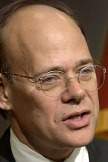Slavery and bathos at Brown and Yale
/Yale was also getting peppered for having dormitory names - Yale calls them "residential colleges"- honoring slave-owning alumni, John Calhoun, the South's famed orator, for one. The agitation stemmed largely from an unofficial history of Yale slavery ties, written by a trio of Yale graduate students in 2001. It had made Yale - rather than the more likely Brown - the North's restive campus in the long drive for reparations for African-Americans.
Yale's president, Richard Levin, felt the North's slavery involvements were "simply a fact of history" in an American past full of embarrassments, and supporters of keeping the names of the residential colleges included key black alumni: Henry Louis Gates Jr., the writer and Harvard's Africana head, who had lived at Calhoun, and former Baltimore Mayor Kurt Schmoke, then head of the Yale Corporation and now law-school dean at Howard University.
Yale kept the tarnished names, and declined to launch its own official search for whatever entanglements exist.
Brown's entanglement was more provocative - its namesake Browns owned slave ships and slaves - yet its campus remained free of agitation, except once and then in reverse order. David Horowitz, a West Coast conservative gadfly, bought an ad in the Brown Daily Herald in March 2001 citing 10 reasons to oppose reparations. A minority coalition, furious when BDH editors declined to apologize or make amends, then confiscated a BDH press run, intensifying the turmoil. The issues of free speech and minority grievances triggered wide national debate.






































































































































































































































































